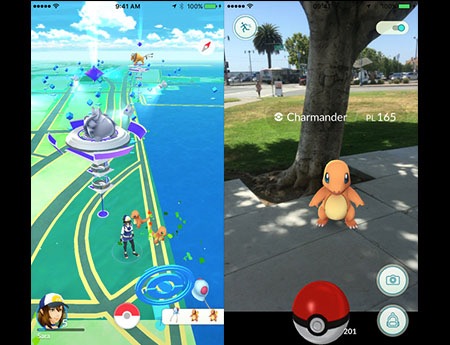Niantic: Pokémon Go Kid Info Stays

The smarter way to stay on top of broadcasting and cable industry. Sign up below
You are now subscribed
Your newsletter sign-up was successful
Niantic says its Pokémon Go mobile app collects user information, which Niantic shares "from time to time" with third parties for marketing and other purposes but does not share that information for anyone under 13.
That came in a letter to Sen. Al Franken (D-Minn.), who had sought information from the company given the runaway popularity, including among teens and kids, and its collection of user information for the game.
But Niantic says it does not sell Pokémon Go information to third parties, "aggregated, de-identified or otherwise"—and has no plans to do so.
Related: PokéSTOP!: CCFC Warns Against Kid-Targeted Ads
Niantic is a Google spinoff, and Google is still part owner. But Niantic says it does not share user information with its investors, though it does share info with Google as a third-party app developer.
Niantic also collects detailed location information on its users when the application is open—such info is integral to the augmented reality experience of the game, and stores it for a maximum of 120 days. Niantic said it does not do background collection of information when the app is closed.
The company also assured Franken it had fixed an error in the Pokémon Go iOS account creation process that had requested users signing into a Google account to provide full account permissions. It now asks only for limited account permissions. It said Google had provided a server-side fix to the problem.
The smarter way to stay on top of broadcasting and cable industry. Sign up below
Franken dubbed the Niantic response comprehensive but still plans to have his staffers meet with officials to clarify some of its answers.
“The launch of Pokémon GO earlier this summer represented a new era in gaming, but shortly after the app's release, there were strong concerns about how it treats its users' digital data,” said Franken. “Now I believe that Americans have a fundamental right to privacy—and that right includes access to clear and comprehensive information about how users' personal information is treated. That’s why I pressed app maker Niantic to detail how Pokémon GO collects, uses, and shares its users' information. I appreciate Niantic’s response, but I intend to work further with the company in the future to ensure that we’re doing everything possible to protect the privacy of Americans—particularly American children—who play Pokémon GO.”
Franken has long been concerned about location privacy issues, like stalker apps and info collection by websites.
Contributing editor John Eggerton has been an editor and/or writer on media regulation, legislation and policy for over four decades, including covering the FCC, FTC, Congress, the major media trade associations, and the federal courts. In addition to Multichannel News and Broadcasting + Cable, his work has appeared in Radio World, TV Technology, TV Fax, This Week in Consumer Electronics, Variety and the Encyclopedia Britannica.

